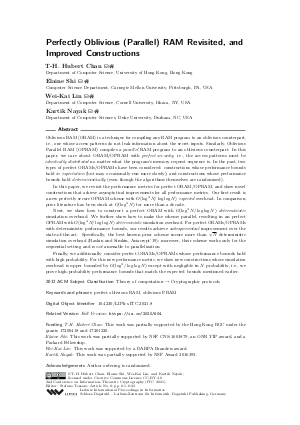LIPIcs.ITC.2021.8.pdf
- Filesize: 0.78 MB
- 23 pages

 Creative Commons Attribution 4.0 International license
Creative Commons Attribution 4.0 International license




































Feedback for Dagstuhl Publishing